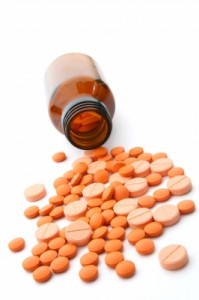 Johnson & Johnson, the parent company of McNeil, went on to recall other medications for adults, with a total of almost 200 million bottles of medicines recalled. 2 The sweeping recalls also affected pregnant women, since Tylenol is the only recommended pain reliever during pregnancy.
Johnson & Johnson, the parent company of McNeil, went on to recall other medications for adults, with a total of almost 200 million bottles of medicines recalled. 2 The sweeping recalls also affected pregnant women, since Tylenol is the only recommended pain reliever during pregnancy.
As a mother who had given her children two of the recalled medications, I was alarmed that the medicines contained ingredients – or foreign particles! – that weren’t supposed to be there. Consumers complained about a moldy smell that came from the medicine bottles, along with tiny black particles in the medicines.
Behind closed doors
However, when the U.S. Food and Drug Administration inspected Johnson & Johnson’s manufacturing plant in Fort Washington, Pa., they discovered “thick dust and grime covering certain equipment, a hole in the ceiling and duct tape-covered pipes,” as well as “raw ingredients contaminated by an unspecified bacteria and a lack of quality control procedures.” 4 Pretty disturbing and disgusting to think of a product assumed as safe to be manufactured in such a contaminated environment.
While the FDA monitored Johnson & Johnson’s quality control procedures, many of the products took a while to return to store shelves. In the meantime, consumers were encouraged to use generic drugs – acetaminophen instead of Tylenol, ibuprofen instead of Motrin, and diphenhydramine instead of Benadryl. 5
Unfortunately, there’s no way for consumers to know the conditions of any manufacturing plant or all potential hazards. As a meager way to protect your family, pay attention to recalls. And, if a medication doesn’t seem quite right, don’t use it.
Sources
Latest posts by Hilary Kimes Bernstein (see all)
- The Day I Realized Healthy Choices Don’t Guarantee Health - July 21, 2015
- Avoid Synthetic Bug Sprays with All-Natural Repellents - July 16, 2015
- The Day I Learned I Could Cook Real Food - July 13, 2015
Leave a Reply